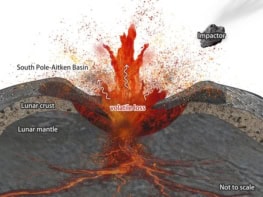
The chief executive of NASA’s science mission directorate has decided to quit the agency after less than a year in the post. Alan Stern will be replaced temporarily by Edward Weiler, the director of NASA’s Goddard Space Flight Centre. Stern, who declined to comment, has not yet publicly revealed the reasons behind his decision.
In a statement released yesterday, NASA administrator Michael Griffin lauded the achievements of Stern, in particular his contributions as principal investigator for the New Horizons mission to Pluto and being a member of the NASA advisory council. “While I deeply regret his decision to leave NASA, I understand his reasons for doing so, and wish him all the best in his future endeavours,” the statement read.
Stern was appointed the role in April last year after his predecessor, Mary Cleave, retired. At the time Stern vowed to make the best of NASA’s festering budget problems, but in certain areas they have gotten worse. At the end of last year US Congress let support for basic and applied research remain static at $3.4bn, which — bolstered by mounting research and development costs for the forthcoming Mars Science Laboratory — have forced the agency to cut back costs for current Mars rovers. In February this year the Bush administration requested the science budget slip by almost $265m.
Many contributions
Stern, 50, received his PhD in astrophysics and planetary atmospheres from the University of Colorado at Boulder in 1989. Since then he has contributed widely to planetary physics, writing over 175 papers, 40 popular articles and two books, The US Space Program After Challenger (1987) and Pluto and Charon: Ice Worlds on the Ragged Edge of the Solar System (2005). Pluto has been one of his primary areas of study, and in 2006 remarked that he would still refer to it as the “ninth planet” in spite of the International Astronomical Union’s decision to reclassify it as a dwarf planet.
It is understood that Stern will remain involved with his present science missions, including being principal investigator for New Horizons, which is expected to reach Pluto in 2015.
Weiler, who has served as the director at Goddard since 2004, will serve as interim science director. He has a PhD in astrophysics from Northwestern University, and has had responsibilities including being chief scientist for the Hubble space telescope between 1979 and 1998, and being director of the Astronomical Search for Origins programme.




